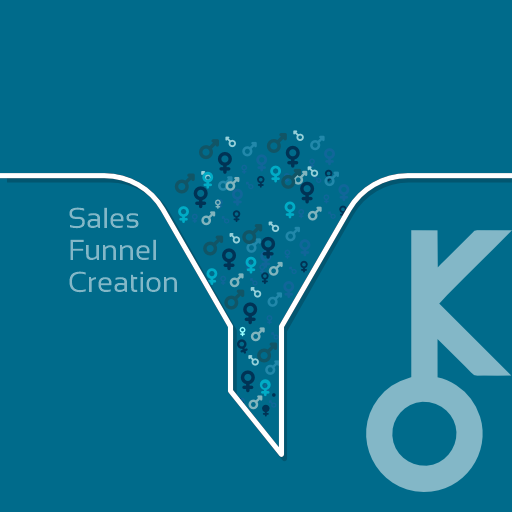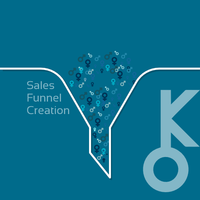Case Studies in Sales Funnel Creation

In the world of sales and marketing, case studies play a crucial role in showcasing the effectiveness and success of different strategies, including sales funnel creation. A case study is an analytical tool that examines real-life scenarios to understand how a particular approach or tactic can lead to desired outcomes.
When it comes to sales funnel creation, case studies provide valuable insights into best practices, conversion rates, customer behavior, and overall performance. By studying successful examples from various industries, marketers and entrepreneurs can gain inspiration and ideas for their own sales funnels.
Sales funnel case studies typically cover different stages of the buyer's journey – from initial awareness to final purchase or conversion. Each stage may involve specific marketing techniques such as lead generation, nurturing prospects, driving engagement, and closing deals.
Benefits of Case Studies in Sales Funnel Creation
Case studies offer several benefits when it comes to understanding and optimizing sales funnels:
- Real-world Examples: They provide concrete examples on how businesses have successfully created effective sales funnels that led to high conversions.
- Validation: Case studies validate hypotheses by demonstrating results achieved through specific strategies or tactics in similar industries.
- Insights on Target Audience: They help identify buyer personas and what motivates them at each stage of the funnel.
- Conversion Optimization: Analyzing case studies helps fine-tune individual funnel stages to maximize conversions.
- Testing Ideas: Case studies allow for testing ideas against previous successes or failures in order to learn what works best for a particular business.
Key Components of a Sales Funnel Case Study
To effectively analyze a case study related to sales funnel creation, it's important to consider key components:
- Objective: Clearly define the goal(s) that were achieved with the implementation of the sales funnel strategy.
- Background Information: Provide context about the industry sector, target audience demographics, and any significant challenges faced by the business.
- Sales Funnel Structure: Explain the different stages of the sales funnel employed in the case study, detailing specific tactics used at each stage.
- Metrics and Measurements: Showcase relevant data such as conversion rates, customer acquisition costs, average lifetime value of customers, etc.
- Key Findings and Learnings: Summarize the main takeaways from the case study – what worked well, what didn't work, and lessons learned throughout the process.
Applying Case Study Insights to Sales Funnel Creation
After reviewing multiple case studies on sales funnel creation and understanding their key findings, it's important to translate those insights into actionable steps for one's own business:
- Identify Target Audience: Understand your target audience's demographics, pain points, motivations, and decision-making processes.
- Craft Compelling Content: Create engaging content tailored to each stage of the sales funnel that addresses customer needs and pushes them closer to conversion.
- Test Different Tactics: Experiment with various marketing techniques such as email campaigns, social media advertising or landing pages at different stages to determine which ones yield maximum results.
- Analyze Data Regularly: Continuously monitor key metrics like conversion rates or click-through rates to identify areas for improvement or optimization within your sales funnel.
- Optimize & Iterate: Use insights gained from both successful and unsuccessful case studies to fine-tune your sales funnel over time.
In conclusion, studying case studies in sales funnel creation provides valuable guidance in building effective marketing strategies that lead to higher conversions and increased revenue generation. By analyzing real-life successes and failures within various industries, businesses can make informed decisions when developing their own customized approaches for sales funnels.
Sponsored
Sponsored
Sponsored
Explore More:

The Impact of AI and Machine Learning
As technology continues to advance at a rapid pace, businesses are constantly looking...

Future of Sales Funnels
The future of sales funnels is an exciting and promising concept for businesses...

Lessons Learned from Failed Funnels
In the realm of sales funnel creation, case studies serve as valuable resources...

Successful Sales Funnel Examples
In sales funnel creation, case studies play a crucial role in demonstrating the...

Sales Funnel Recovery Strategies
Sales funnels are a critical component of any successful sales and marketing strategy....

Improving Funnel Efficiency
A sales funnel is a crucial component of any business's marketing strategy. It...

Identifying Funnel Leaks
A sales funnel is a systematic approach to guiding potential customers through a...

Sales Funnel Troubleshooting
Sales funnel troubleshooting is the process of identifying and resolving issues or bottlenecks...

Sales Funnel Tools and Software: Landing Page Builders
Sales funnels are essential in driving conversions and increasing revenue for businesses. To...

Sales Funnel Tools and Software: Email Marketing Tools
Sales funnel tools and software refer to the various technologies and platforms available...

Sales Funnel Tools and Software: CRM Software
Sales funnel tools are software programs or applications designed to help businesses track...

Sales Funnel Tools and Software
A sales funnel is a framework used by businesses to guide potential customers...

Measuring Sales Funnel Performance: Analytics and Reporting
Measuring sales funnel performance analytics and reporting is a crucial aspect of any...

Measuring Sales Funnel Performance: Sales Funnel Metrics
Measuring the performance of your sales funnel is crucial for understanding the effectiveness...

Measuring Sales Funnel Performance: Key Performance Indicators (KPIs)
Measuring the performance of a sales funnel is crucial for any business aiming...

Measuring Sales Funnel Performance
Sales funnel performance measurement is a crucial aspect of any business operation. It...